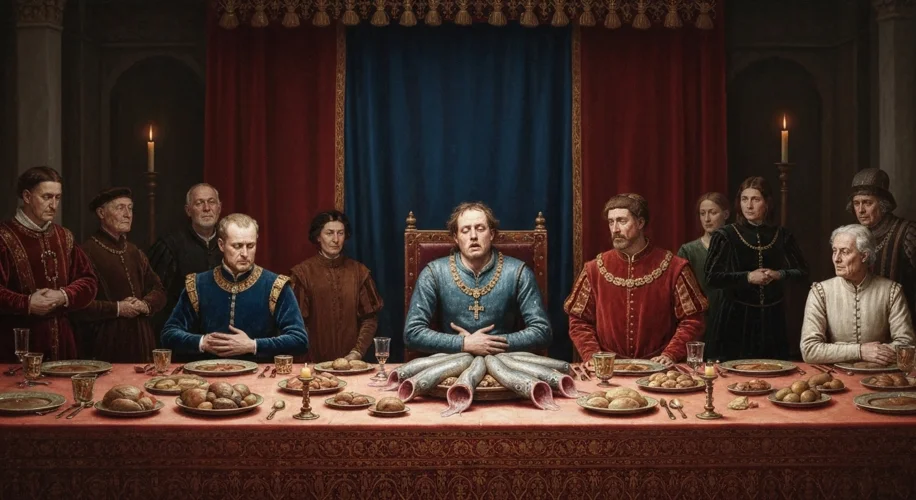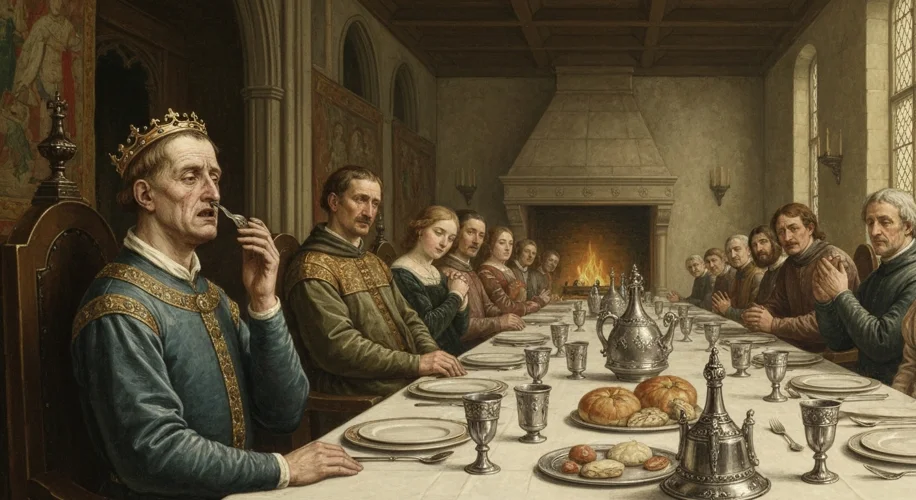The year is 1135. The air in the royal hunting lodge at Saint-Denis, near Paris, is thick with the scent of roasted meat and the murmur of satisfied courtiers. At the heart of this gathering sits King Henry I of England, a monarch whose reign had been marked by shrewd governance, military prowess, and a significant consolidation of royal authority. He was a man who had navigated the treacherous waters of medieval politics with a steady hand, securing his throne and expanding his influence. Yet, it was not a battlefield wound or a political assassination that would ultimately claim his life, but a repast, a kingly indulgence that would become the stuff of legend.
Henry, a renowned gourmand, had developed a particular fondness for lampreys, an ancient and rather unappetizing-looking fish known for its slimy texture and powerful, blood-sucking mouth. These were not humble catches; they were a delicacy, often preserved in wine and served to the elite. On this fateful occasion, Henry indulged, perhaps too well, in a dish of these notorious eels.

The immediate aftermath was not dramatic. Henry felt unwell, a common enough ailment for anyone who had overindulged. However, his condition worsened rapidly. Within days, the robust king was dead. The chroniclers, ever eager to find meaning in the passing of a monarch, quickly attributed his demise to the lampreys. The Anglo-Saxon Chronicle noted, “he ate a great supper of lampreys, and therewith he was right sick, and died the next day.”
But was it truly just an overconsumption of fish that ended the life of one of England’s most formidable kings? Or was this a convenient, perhaps even deliberate, narrative spun to mask a more complex reality? The medieval period was rife with superstition and a deep-seated belief in divine providence. A king’s death could be seen as a judgment from God, and what better way to interpret this than through a tale of gluttony? A king who couldn’t control his appetites, even for a slimy delicacy, might be seen as unfit to rule, or perhaps his death was a sign of God’s displeasure with his actions or policies.
Henry I’s reign was not without its controversies. His relentless pursuit of power had created enemies, and his succession plans were fraught with peril. He had lost his only legitimate son, William Adelin, in the tragic sinking of the White Ship in 1120, a catastrophe that plunged England into a succession crisis and paved the way for the civil war known as ‘The Anarchy’ after Henry’s death. His efforts to secure the throne for his daughter, Matilda, were met with fierce resistance from powerful barons who resented a woman ruling and preferred his nephew, Stephen of Blois.
Some historians suggest that the lamprey story might have served as a convenient euphemism. Could Henry have been poisoned? A political rival, or even a disgruntled faction, might have seen his death as an opportunity. A sudden illness attributed to a known dietary indulgence would deflect suspicion from any nefarious plot. It allowed for a natural, albeit unfortunate, end to a powerful ruler, avoiding the destabilizing implications of an assassination.
Alternatively, the story of the lampreys could be seen as a testament to Henry’s own perception of his life. Perhaps he felt the weight of his years and his deeds, and the lampreys, in their raw, visceral nature, symbolized a surrender to the inevitable, a primal end to a life lived intensely. He was known for his administrative reforms, his patronage of learning, and his efforts to establish a more unified kingdom. His legacy was one of strength and order, but also of a complex personality who enjoyed the finer, and sometimes stranger, things in life.
The truth remains shrouded in the mists of time. The lamprey feast, whether a literal dietary indiscretion or a metaphorical shield, offers a fascinating glimpse into the way medieval society understood death, power, and the narratives that shape history. It reminds us that sometimes, the most dramatic events are not the ones involving clashing swords, but the quiet moments of indulgence that, for better or worse, seal a monarch’s fate and rewrite the course of a kingdom.

